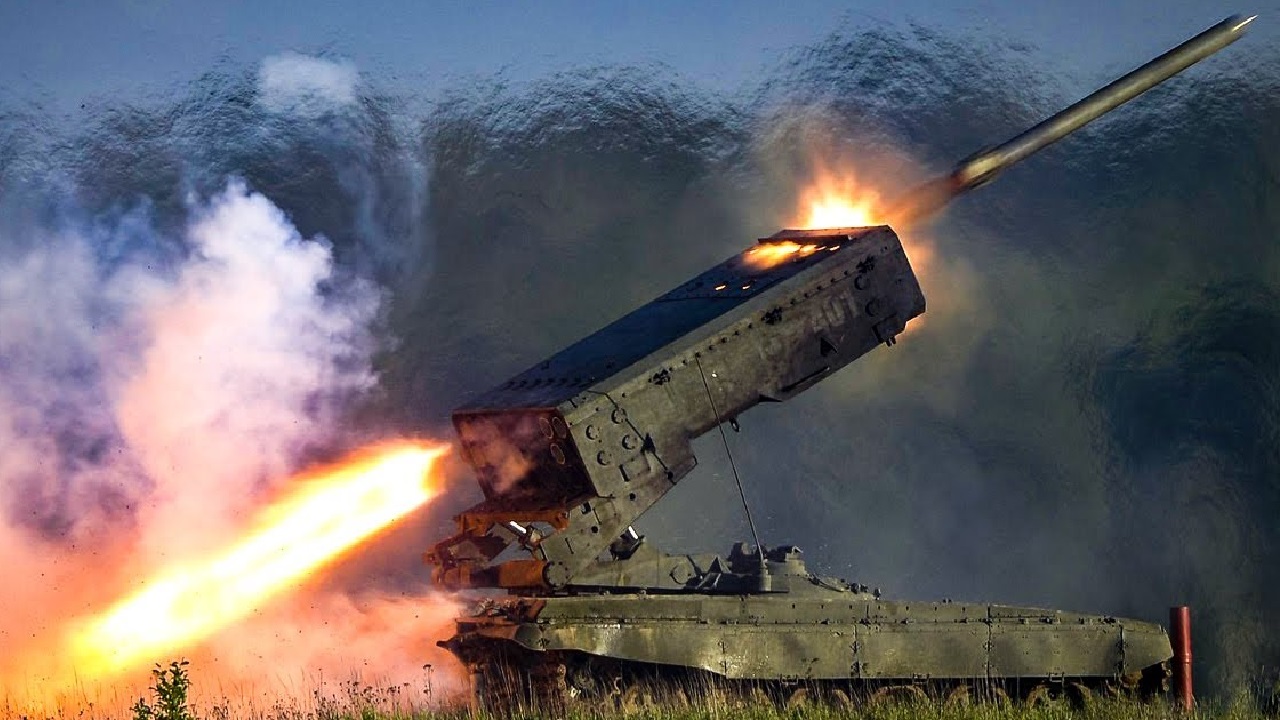Last week, the U.S. designated the infamous Wagner Group private military company as Transnational Criminal Organization.
(Subscribe to Our YouTube Channel Here. 19FortyFive publishes original videos every day.)
The sanctions come at a point in time when Moscow is heavily relying on tens of thousands of mercenaries to achieve its goals in Ukraine.
Who Is the Wagner Group?
Under Executive Order Number 13581, the Department of Treasury designed Wagner Group as a “significant Transnational Criminal Organization.”
The White House is going a step further and will be imposing additional sanctions on the logistical and support networks that Wagner Group is using to support its operations around the world.
The Russian private military company is active in the Middle East, Africa, and even South America.
“With these actions — and there will be more to come — our message to any company that is considering providing support to Wagner is simply this: Wagner is a criminal organization that is. . .committing widespread atrocities and human rights abuses, and we will work relentlessly to identify, disrupt, expose, and target those who are assisting Wagner,” National Security Council Coordinator for Strategic Communications John Kirby said in a press statement.
According to the U.S. Intelligence Community, there are approximately 50,000 Wagner Group mercenaries in Ukraine fighting.
The majority of fighters are convicts who were recruited from prisons and penal colonies with the promise of freedom if they completed a six-month tour of duty in Ukraine.
But around one in every five Wagner Group mercenaries is a seasoned contractor, usually with prior military experience.
Indeed, there are even some Afghan commandos that the U.S. trained and advised in the fight against the Taliban, serving with the Wagner Group on the frontlines.
But the mercenaries have been suffering heavy casualties too.
But the U.S. government will be taking additional steps to curb the influence and operation of the infamous private military company.
The Treasury Department is also targeting arms transfers, such as artillery shells, small arms ammunition, and rifles, from North Korea.
Wagner Group’s Role and Influence on the Russian Campaign
Wanger Group wasn’t always as influential as it is now.
At the beginning of the war, the role of the private military company in the Russian campaign was fairly limited.
But as the Russian military started faltering after several setbacks all across the battlefield, Russian President Vladimir Putin turned to his close associate Yevgeny Prigozhin, the leader and backer of Wagner Group.
Steadily, the influence and role of the private military company in the Russian campaign increased.
Wagner Group reached the peak of influence in the fight for the town of Bakhmut in the Donbas.
For the first time in a large-scale operation, the Kremlin turned to the mercenaries to take the town, leaving the Russian military in a supporting role.
Since then, Wagner Group has been leading the fight in the area, achieving some small victories, such as the capture of the small town of Soledar to the north of Bakhmut, but at the cost of horrible casualties.
However, Wagner Group’s star might soon be waning as an increasingly alarmed Russian military is seeking to re-establish its authority over the planning and conduct of the war.
MORE: Why Putin Fears the M1 Abrams Tank
MORE: I Went to War in the Leopard 2 Tank Ukraine Wants
MORE: World War III – Where Could It Start?
MORE: A U.S.-China War Over Taiwan Would Be Bloody
Expert Biography: A 19FortyFive Defense and National Security Columnist, Stavros Atlamazoglou is a seasoned defense journalist specializing in special operations, a Hellenic Army veteran (national service with the 575th Marine Battalion and Army HQ), and a Johns Hopkins University graduate.

